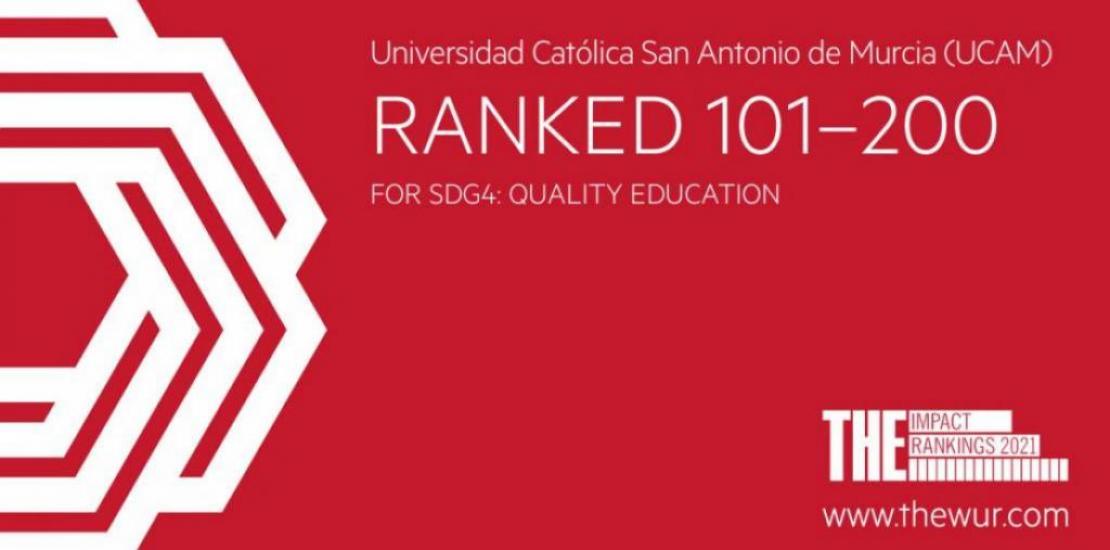Times Higher Education singles out UCAM for its contribution to the SDGs related to Health and Education
The ‘Impact Ranking’ of THE, which analyses 1,100 universities from all over the world in the field of Sustainable Development Goals, highlights its work in the field of health and well-being, quality education, training on SDGs and gender equality
Good health and well-being (SDG3) and Quality Education(SDG4) are the fields in which Times Higher Education has highlighted the work of UCAM in a Ranking that analyses more than 1,100 institutions in the entire world with regard to their contribution for the achievement of the seventeen Sustainable Development Goals of the United Nations. THE divided its ranking study in four areas (research, administration, dissemination and teaching) to highlight the work of each institution in relation to each SDG.
UCAM Universidad Católica de Murcia stands out especially for its contribution to the achievement of SDG3 ‘Good health and well-being’, which measures universities’ research on diseases and illnesses, their support to health professions and students’ and personnel's health. UCAM holds the tenth position in Spain in this area and it is included in the 201-300 segment at an international level.
UCAM Universidad Católica de Murcia stands out mostly for its contribution to the achievement of SDG4, ‘Quality education”, which measures the contribution of universities in favour of early childhood education and permanent learning, their pedagogical research and their commitment to inclusive education. With regard to this category, UCAM holds the eleventh position in Spain and it is included in the 101-200 segment at a global level.
With respect to Gender Equality, the aspect of UCAM that THE highlights is its percentage of first-generation female university students, i.e., those who are the first females to go to University in their families.
Another key element UCAM has been working on and that is noted by this ranking is training related to SGDs, which is included in the ‘Partnership for the goals’ category; this category analyses the different ways in which universities support SDGs through collaborations with other countries, promotion of good practices and data publication.




